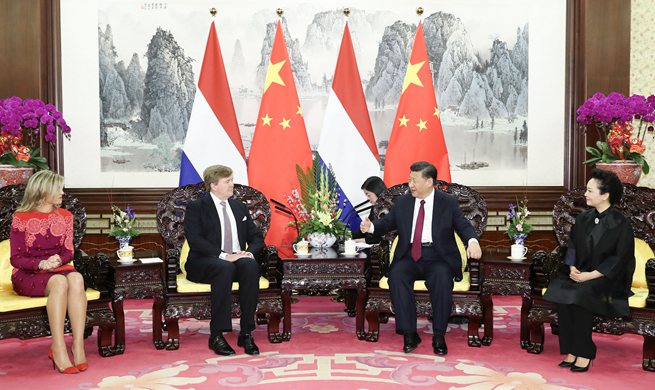UNITED NATIONS, Feb. 8 (Xinhua) -- A senior UN official on Thursday warned against complacency in the fight against the Islamic State (IS) terrorist group despite its recent military setbacks in Iraq, Syria and the southern Philippines.
The fight against the IS is entering a new phase after the terrorist group's decisive defeat, but the group and its affiliates continue to pose a significant and evolving threat around the world, Vladimir Voronkov, Under-Secretary-general for UN Counter-Terrorism Office, told the UN Security Council.
The IS is no longer focused on conquering and holding territory. It has been forced to adapt and focus primarily on a smaller and more motivated group of individuals who remain committed to inspiring, enabling and carrying out attacks, said Vrononkov. "It is now organized as a global network with a flat hierarchy and less operational control over its affiliates."
Although it is difficult to assess the exact number of foreign terrorist fighters who remain in Iraq and Syria, the flow of fighters to both countries has nearly come to a halt. However, returning foreign terrorist fighters, and those who relocate to other regions continue to present a considerable threat to international security, said Voronkov.
The group's global propaganda machinery has shrunk, he said, but IS members and sympathizers are still able to use social media, including encryption technology and communication tools within the dark web, to communicate, coordinate and facilitate attacks, said the UN official.
The terrorist group's ability to generate revenues has been considerably weakened, largely owing to its loss of control over oil and gas fields in Syria. The IS revenues have fallen by more than 90 percent since 2015, Voronkov noted.
The group is still able to generate income through extortion and the control of checkpoints. A key concern is how to allow reconstruction and stabilization funds to flow into areas liberated from the IS, while preventing the much-needed funds from ending up in IS's hands, he said.
As the IS has been forced out of Iraq and Syria, its affiliates in Egypt have shown considerable resilience and pose a growing threat. The IS remains determined to rebuild its capabilities in Libya and it continues to carry out sporadic attacks, said Voronkov.
The IS is also active in Afghanistan and parts of Africa, he said.
"The fight against SIIL (Islamic State in Iraq and the Levant) and its affiliates is far from over. While there have been significant military successes over the past eight months, this remains a truly global challenge that demands an urgent and concerted multilateral response," said Voronkov, using another acronym of the terrorist organization.

















